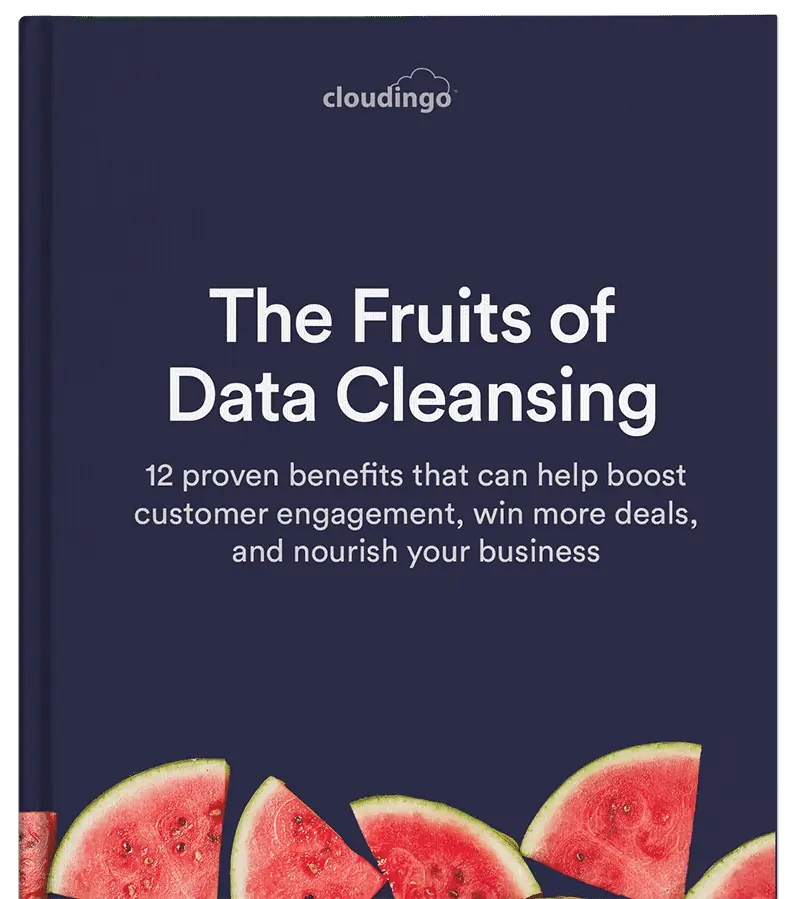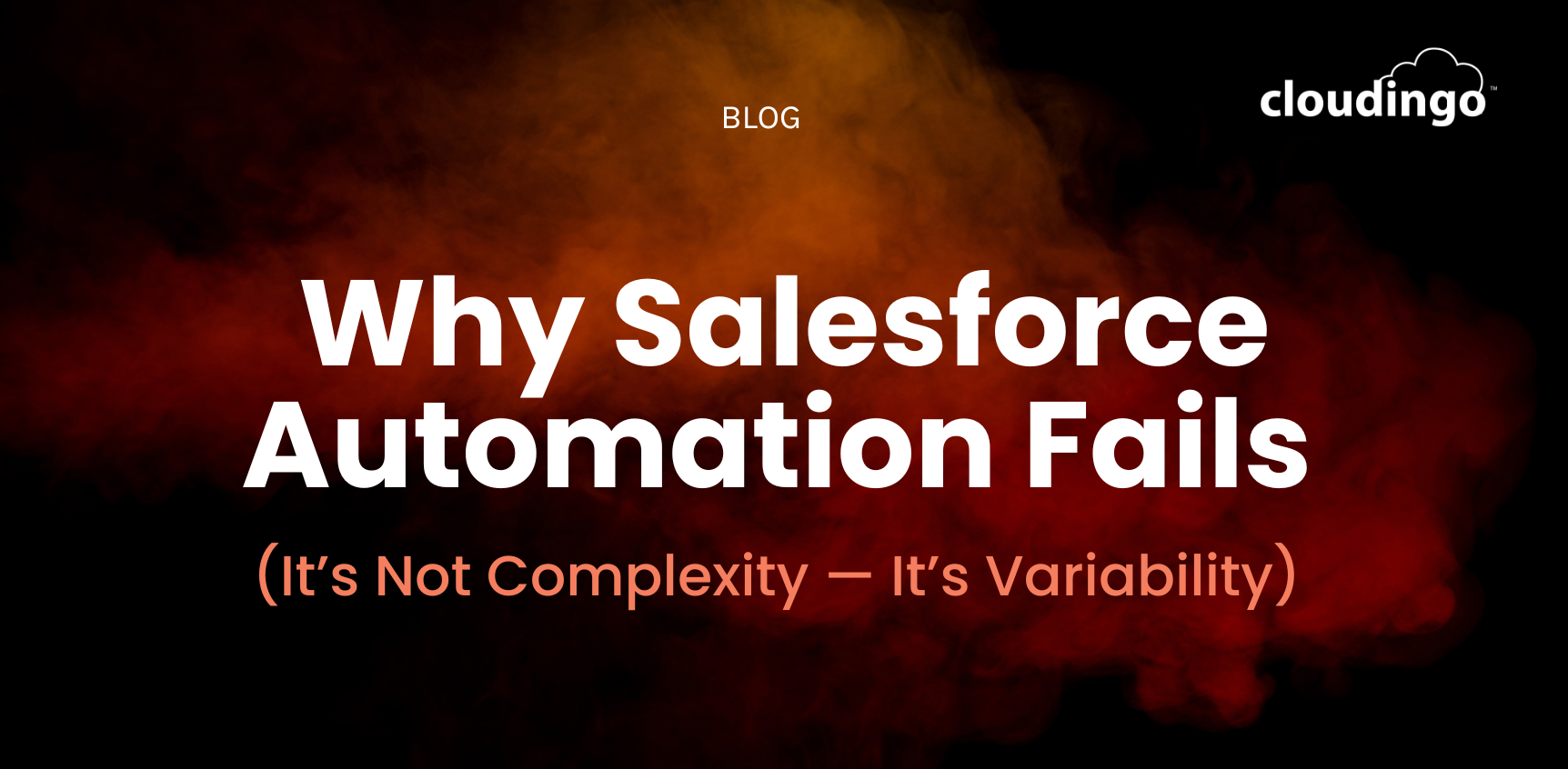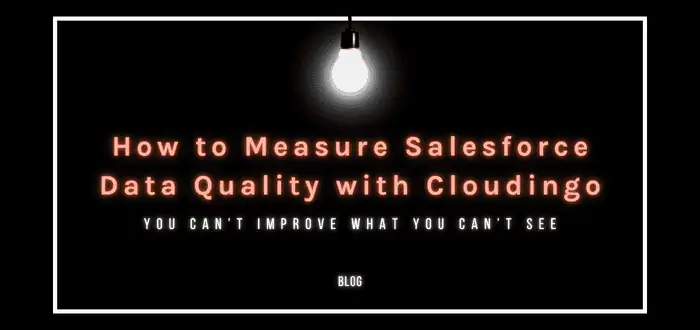August 28, 2024
The Power of Filters in Cloudingo: Your Ultimate Tool for Data Quality Management

In today's data-driven world, maintaining clean, accurate, and reliable data is essential for businesses. However, as databases grow, they often become cluttered with duplicate records and inconsistencies that can undermine the effectiveness of your CRM. This is where a data management tool comes into play. At the heart of Cloudingo's functionality are its customizable filters, which serve as powerful tools to identify and address data quality issues. Think of them like reports of issues with your data.
Understanding Filters in Cloudingo
Filters in Cloudingo are more than just a search function—they are the backbone of your data cleansing efforts. By setting up filters, you can precisely define the criteria that will be used to identify duplicate records or other data inconsistencies within your Salesforce or Marketo database. These filters allow you to streamline the process of finding and merging duplicates, ensuring that your data remains accurate and reliable.
The Role of Filters in Data Quality
Cloudingo filters operate on a set of rules that you define, making them highly customizable to fit your specific data management needs. Whether you’re dealing with duplicate leads, contacts, accounts, or person accounts, filters enable you to pinpoint exact matches or near-duplicates based on a variety of criteria, such as email addresses, phone numbers, company names, and more.
With the ability to create cross-matching filters, you can even compare different fields against each other to uncover hidden duplicates that might otherwise go unnoticed. For example, you can compare primary and alternate email addresses to ensure that no duplicate contacts slip through the cracks.
Key Features of Cloudingo Filters
- Customizable Matching Criteria: Cloudingo allows you to tailor your filters by selecting specific fields and applying matching styles that best suit your data structure. Whether you need exact matches or fuzzy logic to catch slight variations in data, Cloudingo's filters provide the flexibility to manage your data with precision.
- Real-Time Data Merging: One of the standout features of Cloudingo filters is the real-time merge option. This feature continuously monitors incoming data and automatically merges duplicates as they enter your system, ensuring your records remain clean and up to date without manual intervention.
- Data Segmentation and Grouping: Filters can be set to limit records and group them based on specific criteria, allowing for more targeted data cleansing efforts. Whether you need to focus on smaller data sets or specific types of records, Cloudingo's grouping and segmentation options provide the control you need.
- Indexing for Enhanced Performance: To optimize the performance of your filters, Cloudingo supports indexing of fields. This means that even with complex filters involving multiple fields, Cloudingo ensures that your data processing remains efficient and fast.
The Importance of Regular Data Cleansing
Data quality is not a one-time task but an ongoing process. Regularly updating and managing your Cloudingo filters ensures that your Salesforce data remains accurate, complete, and trustworthy. By proactively addressing data quality issues, you can avoid the pitfalls of duplicate records, such as skewed analytics, impaired decision-making, and wasted resources.
Conclusion
Filters are an essential component of Cloudingo's data management toolkit. By leveraging these powerful tools, businesses can maintain a clean and efficient Salesforce database, leading to better decision-making and improved overall performance. Whether you're dealing with a small dataset or managing vast amounts of data across multiple objects, Cloudingo's filters offer the precision and flexibility needed to keep your data quality at its best.
Start optimizing your data today by exploring the full potential of Cloudingo's filters, and watch as your data transforms into a reliable source of truth for your business.






